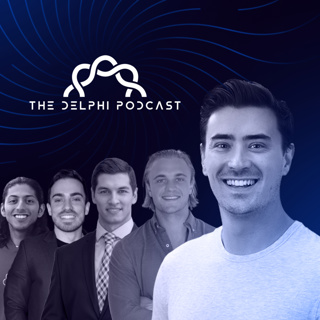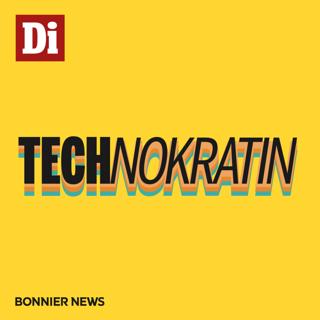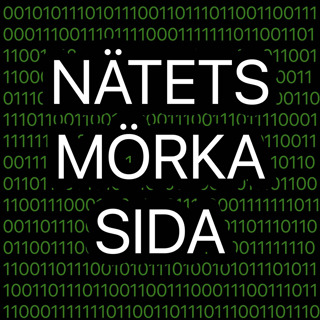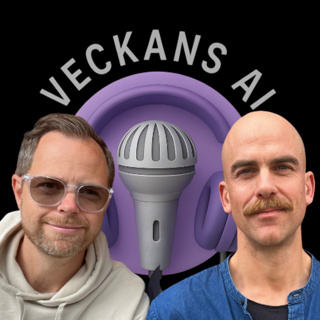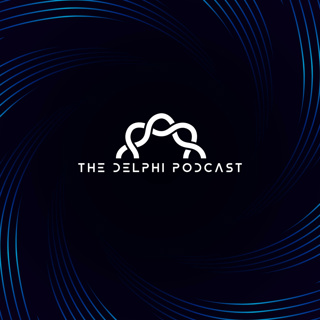
ZenLedger’s Pat Larsen: Navy Pilot To Crypto Startup CEO
Host Tom Shaughnessy talks to Pat Larsen, CEO, and co-founder of ZenLedger. They discuss the issues with filing taxes when you have cryptocurrencies, what gaps ZenLedger fills, possible future use cases, and more. Episode Highlights: Pat went to the US Marine Academy and became a Navy officer, completing two combat tours. He proceeded to work in investment banking and tech, including for Amazon and several startups, before founding ZenLedger. Between his time in the Navy and his education, Pat is experienced both in math and science and in risk-taking and decision making. ZenLedger is a browser-based cryptocurrency tax software. The software handles the crypto portion of your taxes and allows you to export the data to use in their main tax filing. Because Congress hasn’t passed many laws regulating or providing guidance on taxation of crypto, so ZenLedger has to lean on the IRS for that information on complex things like mining, staking, airdrops, etc. One of ZenLedger’s founding offerings was their customer service and automation. TurboTax is a partner with ZenLedger. They generate new customers in various ways from talking about tax-loss harvesting to organic outreach on podcasts to building partnerships. It only takes about 10 minutes to use the software as a new user; the biggest step is connecting to your exchanges. ZenLedger demonstrates that you’re covering your bases and making good-faith efforts to file your taxes correctly. The automatically generated 1099-K forms from exchanges only show your aggregate trading, not your net capital gains and losses. Pat and Tom think a possible future use case could be using ZenLedger to file your basic income tax if it ends up being earned entirely through cryptocurrency. Pat’s Navy background taught him to make contingency plans for everything. Right now in the midst of all the macroeconomic changes happening due to COVID-19, Bitcoin has been largely unaffected. Key Points: Most CPAs have no idea how to handle cryptocurrency in tax filings. Using ZenLedger saves you hours of aggregating information manually. Tweetable Quotes “The IRS obviously cares. They’ve sent out tens of thousands of warning letters. They’re using blockchain analytic software. So I think the enforcement actions are stepping up, there will be audits, so you just want to take care of yourself.” –Pat Larsen “At its core, we’re saving you time, we’re giving you accurate reports, and we’re giving you peace of mind whether you’re in a corporate capacity or an individual capacity.” –Pat Larsen “You’re going big wave surfing & you just have to pick a place that has good waves & you need to trust that you’ve trained with your skills to be able to ride those waves, & if you fall down as you inevitably will, that you’re gonna get back up & ride another wave.” –Pat Larsen Support The Show ZenLedger is the official tax software of Chain Reaction for crypto investors and accountants. Get a 15% discount when you use code Chain
30 Mars 202040min

Delta Exchange’s Pankaj Balani: Building a Crypto Derivatives Exchange for Global Scale.
Host Tom Shaughnessy talks to Pankaj Balani, CEO and co-founder of Delta Exchange. They discuss the differences between derivatives exchanges vs traditional exchanges, market stability, current engineering challenges, and more. Episode Highlights: Pankaj began in derivatives trading in Hong Kong before moving into hedge funds. Pankaj believes his old colleagues view crypto as another asset class and are receptive to it. The reaction has been positive to the recent Supreme Court decision in India to lift the ban on banks handling cryptocurrencies. There has been significant growth in crypto in India in the last 2-3 months, more than many other markets have seen. Even in the US, a lot of the major banks are difficult to work within crypto. More and more people are viewing Bitcoin as a stable investment. Delta’s focus is on retail and professional traders; there is a demand for hedging, but there is more demand for speculation. They have more coins listed with them than any other peer exchange. Delta plans to launch a product that marries DeFi and CeFi They realized they had to build technology that could monitor as many as 100 coins over every customer throughout the day’s fluctuations. These engineering challenges are comparable to the engineering challenges in video streaming. Pankaj doesn’t attribute the current market fluctuations entirely to coronavirus but it’s certainly a factor. Key Points: The lack of cooperation from major banks has held the development of crypto back. No one in the derivatives space has truly solved the problem of scale across multiple assets. Trading on futures is necessary in crypto. Quotes “The genesis of derivative products, the need, it basically arose from the fact that people need to protect themselves against price movements.” –Pankaj Balani “We are always very available to any kind of discussions. That’s the beauty of working in cryptos—you run a company and you’re interacting with your customers.” –Pankaj Balani Support The Show ZenLedger is the official tax software of Chain Reaction for crypto investors and accountants. Get a 15% discount when you use code Chain15. https://bit.ly/3bundEl Visit Delta Exchange For A $10 Welcome Bonus! https://www.delta.exchange/Tom Resources Mentioned: Chain Reaction Twitter: https://twitter.com/chainpodcast Tom Shaughnessy Twitter: https://twitter.com/Shaughnessy119 ZenLedger is the official tax software of Chain Reaction for crypto investors and accountants. Get a 15% discount when you use code Chain15. <li style="font-weigh
25 Mars 202049min

Catherine Coley: From Morgan Stanley to Relentlessly Running Binance U.S.
Host Tom Shaughnessy talks to Catherine Coley, CEO of Binance.US. They discuss Binance.US’s origin story, how Catherine made the switch from traditional finance to digital assets, how she sees them differing, and more. Key Points: The scale of digital assets is wildly different from traditional finance. Digital assets allow users to have more agency and voice in their financial choices. Being in crypto gives you an expanded skillset and toolbox. Episode Highlights: They are recording on the day the US stock market dropped 1,000 points, but it feels different from the crash in 2008. Binance.US offers an opportunity for Americans to get into digital assets through dollar onramps, over 30 coins, and more. Binance.US only launched 166 days ago. A high concentration of traditional finance professionals have moved into crypto and digital assets. People who appreciate efficiency are drawn to digital asset management. Technologically, what an exchange has to deal with on a daily basis is huge, but when you compare it to trades at Morgan Stanley or something comparable, it’s a matter of $20 million vs $600 million. There is a fear that the US will lose out on talent because our regulations are so strict that they constrain innovation. By virtue of coming into the game late, Binance has the advantage of having a clear view of the market and what the gaps are. We have a lot of time before we have to worry about the consolidation of the crypto space to mimic Wall Street. Binance is also involved with staking and governance. Their goal is to allow a wide range of users to access staking and trading at various levels of complexity to fit their needs. Binance.US has a referral program that sets it apart from other platforms. Catherine is only interested in Binance.US building features and products that her customers are interested in. Current society keeping money as a taboo conversation topic prevents people from gaining the confidence to handle their own finances. While Catherine was at Morgan Stanley, she watched the pipeline of traditional analysts and traders dry up and they lost people to Square and Twitter, which led her to realize she had to be fluent in tech in addition to finance. Key Points: The scale of digital assets is wildly different from traditional finance. Digital assets allow users to have more agency and voice in their financial choices. Being in crypto gives you an expanded skillset and toolbox. Tweetable Quotes “The quality of service that you receive at Morgan Stanley or Goldman Sachs is one that should be democratized and shared with all. So I think that’s a positive that you’d see the quality of research be able to go further downstream.” –Catherine Coley “There’s a part of me that goes, ‘Would trader Coley really be pleased right now?’ The answer is usually no, we’ve got to do more. So that keeps me pushing forward to improve the product, to improve the expe
20 Mars 202049min

Eli Ben-Sasson, Uri Kolodny and Will Harborne: A STARK Powered DEX Capable of 9,000 TPS
Host Tom Shaughnessy talks to Uri Kolodny and Eli Ben Sasson of StarkWare, and Will Harborne from DeversiFi. They discuss the pros and cons of centralized and decentralized exchanges, the development of Layer 2 technologies, scalability, and more. Episode Highlights: StarkWare is an Israeli startup that develops proof systems for scalability, security, and permissions for blockchain. DeversiFi is a decentralized exchange that allows people to connect to any Ethereum wallet and can reach up to 9,000 TPS. DeversiFi is now working to scale up beyond Ethereum to its own centralized exchange, and is using StarkWare technology to do that. The biggest benefit of having all the benefits of a decentralized exchange operating on a centralized exchange is a higher number of trades per second. Starks are a type of zero-knowledge proof system with extreme scalability and transparency that rely on a lot of complex mathematics behind the scenes. What this technology results in is essentially a receipt for your transaction, a guarantee that your trade was handled correctly and that there was computational integrity. There are differences between Snarks and Starks—Starks have no trusted setup and have post-quantum security. When you want to scale, you don’t want a trusted setup limiting you to generating new sets of keys but allows you to operate more universally. It’s a plausible security threat that eventually hackers will be able to breach coins and blockchains that are not post-quantum secured. Adding zero-knowledge to the settlement process doesn’t automatically give you privacy, so they’re working on boosting those privacy demands. Pure centralized exchange technology is rapidly becoming a commodity, including cloud-based services. They are starting to look at non-fungible tokens. Key Points: In terms of scalability, the next step is to have all the security benefits of a decentralized exchange with the speed of a centralized exchange. Centralized exchanges will always be needed for simple retail exchanges. This partnership is one of the first Layer 2 scaling technologies being used to power an existing business model. Tweetable Quotes “We all believe that this technology of zero-knowledge proofs is going to be used someday by even the most powerful of monopolies or governments to attest to the citizens that everything has been done with computational integrity.” –Eli Ben Sasson “I think the fiat on-ramp is naturally the hardest thing to decentralize if it can be at all.” –Will “Our scalability can basically be considered a means of saving the application gas cost on Ethereum and allowing it to scale essentially indefinitely. Think of us as a compression service.” –Uri Kolodny Support The Show ZenLedger is the official tax software of Chain Reaction for crypto investors and accountants. Get a 15% discount when you use code Chain15. https://bit.ly/3bundEl <li
14 Mars 202038min

Solana’s Anatoly Yakovenko: A Trustless Clock To Rethink Time
Host Tom Shaughnessy talks to Anatoly Yakovenko, Founder of Solana. They discuss how to make blockchain technology faster, its use cases, and how to accrue value in this space. They also discuss the philosophy behind where blockchain, math, and time intersect. Key Points Processing speed has less to do with hardware than software; it’s the software that currently does not take full advantage of the processing speed some hardware is capable of. Solana is almost like a hardware in itself because other blockchains can run on it if they require the speed and the scale. Technology like Solana allows software to become more flexible. Quotes “There’s a constant trade-off between performance, security, and decentralization.” –Anatoly Yakovenko “Imagine in 1996 if someone told you that the internet was going to become 3 billion people and we’re just going to connect them and get them to share pictures of their cats, and that’s going to be worth half a trillion dollars.” –Anatoly Yakovenko “I think what we’ll see is the projects that will succeed the most are the ones that can cannibalize everybody else. That can actually lift pieces out and start integrating them as fast as possible.” –Anatoly Yakovenko Episode Highlights Solana is a high-performance blockchain that Anatoly believes is the fastest computing possible. Hardware is going to keep getting faster and faster. Most blockchain tech right now works through synchronization, meaning all of the computers worldwide need to talk to each other and synchronize before moving onto the next step. With Solana, each node of the blockchain can run time by itself and timestamp messages with high TPS and without having to be in contact with each other. There are very few collisions, but when there are, they are able to solve them with consensus. It’s essentially a global computer synchronized within 400 milliseconds. Solana is focused on scaling without sharding their layer one blockchains. Anatoly believes DeFi will need hundreds of millions of users before it accrues real value. If blockchains have the need, they will come to Solana; why would someone who’s achieved success building on Ethereum pack up and move to a different platform? But if eventually, Ethereum becomes too slow, then they may have a reason to switch to Solana. One major misconception about Solana is that it’s a single node when really it’s a single virtual clock that is recomputed across many nodes. Another misconception is that validators are too expensive to run on Solana. You can deploy a 1,000 TPS droplet for $5/month. Hardware is flexible; you only have to pay for what you use. Anatoly predicts that the projects that will succeed the most will be the ones that can take the best pieces of other projects and integrate them faster than others. To Anatoly, Solana is an engine of price discovery as a high-performance blockchain. Solana can do up to 30,000 price updates per second. <li style="
11 Mars 202054min

The Graph’s Yaniv Tal: Indexing DeFi, Web3 and The Decentralized Future
Host Tom Shaughnessy talks to Yaniv Tal, project lead at The Graph to discuss how the Graph is a decentralized protocol for querying data from blockchains, starting with Ethereum. We discuss indexing DeFi, Web3 and the decentralized future. Episode Highlights: What the graph is and its current status How the graph works, and what an indexing and querying layer for blockchains means. The Web3 apps The Graph will enable in the future User experience and user interface hurdles for decentralized applications The decentralization spectrum Identity as a core primitive of Web3. Why the route to Web3 is not attacking Web2 apps, since the latter are fully optimized and have network effects. Identity is a core primitive of web3 Support The Show ZenLedger is the official tax software of Chain Reaction for crypto investors and accountants. Get a 15% discount when you use code Chain15. https://bit.ly/3bundEl Resources Mentioned: Chain Reaction Twitter: https://twitter.com/chainpodcast Tom Shaughnessy Twitter: https://twitter.com/Shaughnessy119 The Graph Website: https://thegraph.com/ Yaniv's Twitter: https://twitter.com/yanivgraph Disclosures: This podcast is strictly informational and educational and is not investment advice or a solicitation to buy or sell any tokens or securities or to make any financial decisions. Do not trade or invest in any project, tokens, or securities based upon this podcast episode. The host may personally own tokens that are mentioned on the podcast. Tom Shaughnessy owns tokens in ETH, BTC, STX, SNX, RUNE, sUSD and HNT. Let's Talk Bitcoin is a distribution partner for the Chain Reaction Podcast, and our current show features paid sponsorships which may be featured at the start, middle and/or the end of the episode. These sponsorships are for informational purposes only and are not a solicitation to use any product or service. Music Attribution: Cosmos by From The Dust | https://soundcloud.com/ftdmusic Music promoted by https://www.free-stock-music.com Creative Commons Attribution 3.0 Unported License https://creativecommons.org/licenses/by/3.0/deed.en_US
9 Mars 202052min

Oliver Renick and Guest Host Kevin Kelly: Macro Matters Series
On this exclusive Macro Matters Series, guest host Kevin Kelly talks to Oliver Renick, lead anchor for TD Ameritrade Network, about his outlook for markets and the way Oliver and his team integrate Bitcoin & crypto into their day-to-day coverage. Oliver discusses his philosophy for covering markets and the move away from “momentum news”, the growing importance of bitcoin as a macroeconomic indicator, consensus expectations for monetary policy and the “Fed fulcrum”, what we can expect as the world tries to assess the economic fallout from coronavirus, and much more! Key Points Bitcoin’s potential as a high-beta safety play - similar to bonds and gold - with a very specific tie into interest rates and monetary policy trends. The imminent risk of coronavirus and the potential ramifications on the global economy if the situation escalates further. Market consensus for lower rates is at an extreme, implying asymmetric downside risk to the bond trade that’s pushed long-dated Treasury yields to their lowest level in history if the long-term impact of COVID-19 turns out to be less severe than expected. Quotes “There is an imminent risk that has no precedent basically and that is coronavirus and the potential economic impact due to China’s supply chain shutting down and the subsequent areas it might crop up in as well.” – Oliver Renick “I suspect we need to continue to think about the risks associated with this concept of a free lunch, essentially, where the bond market can rally and the Fed will cut behind it.” – Oliver Renick “If the market and signal being sent by gold and bonds right now are correct then it seems to suggest we’re going to be in a world of trouble because if the Fed has to cut again, after they said they didn’t want to cut, we really have to start giving more credence to the whole ‘bullets in the chamber’ argument.” – Oliver Renick “There’s too much that’s based on this assumption that we’re only going one direction in rates.” – Oliver Renick Support The Show ZenLedger is the official tax software of Chain Reaction for crypto investors and accountants. Get a 15% discount when you use code Chain15. https://bit.ly/3bundEl Visit Delta Exchange For A $10 Welcome Bonus! https://www.delta.exchange/Tom To sponsor this top crypto research podcast, email Tom@DelphiDigital.io Disclosures: This podcast is strictly informational and educational and is not investment advice or a solicitation to buy or sell any tokens or securities or to make any financial decisions. Do not trade or invest in any project, tokens, or securities based upon this podcast episode. The host may personally own tokens that are mentioned on the podcast. Tom Shaughnessy owns tokens in ETH, BTC, STX, SNX, RUNE, sUSD and HNT. Let's Talk Bitcoin is a distribution partner for the Chain Reaction Podcast, and our current show features paid sponsorships which may be featured at the start, middle and/or the end of the episode. These sponsorships are for informational purposes only and are not a solicitation to use any product or service. Guest host Kevin Kelly hold
4 Mars 20201h 23min

SKALE Labs’ Stan Kladko: Building A Decentralized Amazon Web Services
Host Tom Shaughnessy talks to Stan Kladko, Co-Founder and CTO of SKALE Labs. They discuss the evolution of SKALE Labs, the decentralization of finance and social networks, and the current state of artificial intelligence. This builds on our previous episode with SKALE's CEO and Co-founder Jack O'Holleran. Episode Highlights: Stan Kladko did his PhD in Germany in physics and moved to Stanford and Silicon Valley. Stan joined a past start-up and raised about $50 million but it wasn’t making money. Stan Kladko was introduced to Jack O'Holleran, the other co-founder of SKALE Cryptocurrency is still not totally popular in 2020. “Crossing the Chasm” is a book by Geoffrey A. Moore about going beyond early adopters with technology. SKALE Labs is looking to be a competitor with Google and AWS. Decentralized social networks are increasing in demand from younger users. We need to get people to utilize decentralized social networks. Are people going to build out their own data centers eventually? People don’t realize how vulnerable things are in the crypto space. Stan Kladko shares his opinions on whether companies can decentralize over time. You can’t just build a solid system on algorithms. SKALE has been coding nonstop for about two years with 9000 commits in their source code, with between 10-15 engineers. They are looking for people to stay and use their service for at least a year. An effective use of SKALE’s services are inside private enterprises and replacing Oracle. AI is currently very centralized. Neural networks are affecting our lives by telling us what to buy or read. The hardest technical hurdle SKALE has to overcome is fixing bugs. SKALE is looking for contributors and developers. Key Points Decentralized finance, decentralized social networks, and gaming are popular in 2020. People are unfortunately very reactive in their choices regarding security and and not very proactive. When you understand the structure, you are able to create a secure system. Quotes “The problem is when you are competing with companies like Google or AWS, these huge giants, it is very hard for a tiny start-up to actually sell things because people may like your product. But the question they ask, are you going to be there like next year?” –Stan Kladko “As a start-up, it is very important for you to understand what the market needs in a particular year.” –Stan Kladko “To move the technology from early adopters to the mainstream you need to somehow cross the chasm and in the process of crossing the chasm you kind of change things a bit and make some compromises.” –Stan Kladko Support The Show ZenLedger is the official tax software of Chain Reaction for crypto inves
2 Mars 202057min
